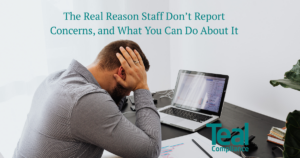As part of the Legal Alliance Compliance Club+, Amy Bell, founder of Teal Compliance and Chair of the Law Society’s Economic Crime Taskforce, delivered an exclusive webinar to update members on the latest developments in compliance.
This session focused on recent changes in anti-money laundering (AML), regulatory compliance, and the wider risks law firms should keep on their radar.
Anti-Money Laundering: Key Updates Autumn 2025
National Risk Assessment
The government released a new National Risk Assessment (NRA) over the summer. The legal sector continues to be categorised as high risk for money laundering and low risk for terrorist financing.
The main vulnerabilities remain:
- Property transactions (residential, commercial, and prime property);
- Trust and company service provision; and
- Abuse of client accounts.
The updated NRA provides more detailed typologies, such as the use of shell or offshore companies, bridging finance, and prime property purchases.
“Don’t just assume it’s your local drug dealer you need to worry about. The risks are often more sophisticated.”
Amy Bell, CEO, Teal Compliance
Property and Fraud Links
Property continues to be a central risk area. Criminals not only launder funds through purchases but also use properties directly to commit offences, such as running cannabis farms or other illicit operations.
“It’s not just money laundering through purchase, but also using property for the crime itself.”
Amy Bell, CEO, Teal Compliance
Mark Heffer and Saba Janjua are our fraud prevention specialists, and because of the continued threats we ensured our Fraud Prevention Services were accessible to all law firms.
Regulatory Compliance: SRA Guidance and Audits
Independent AML Audits
The Solicitors Regulation Authority (SRA) has issued updated guidance around size and nature, confirming that many firms carrying out high-risk work such as conveyancing will require an independent AML audit.
Failure to have one in place can lead to significant disciplinary consequences. Recent fines have been as high as 2% of turnover.
“If you are sat there thinking, ‘We’ve not had an audit’, get one. We are seeing firms disciplined for not having one.”
Amy Bell, CEO, Teal Compliance
Staff Screening and Training
Larger or higher-risk firms are also expected to demonstrate effective screening of staff for both knowledge and integrity, alongside evidence of robust AML training.
Sectoral Risk Assessments and Emerging Issues
The SRA’s sectoral risk assessment has been refreshed, with additional risks identified:
- Capital flight from high-risk countries linked to political instability;
- Client account misuse, including residual balances and banking facility breaches; and
- Incorrect record keeping and inadequate client due diligence.
These themes underline the importance of thorough, documented checks and ongoing monitoring.
Draft Changes to the Money Laundering Regulations
The government has also published draft amendments to the Money Laundering Regulations 2017, currently under consultation. Four areas of particular relevance to the legal sector include:
- Enhanced due diligence restricted to FATF’s blacklist, not the grey list;
- Clearer guidance on what counts as unusually complex or large transactions;
- New requirements relating to pooled client accounts and bank undertakings; and
Adjustments to trust registration rules.
Practical Takeaways for Law Firms
Law firms should really be taking proactive steps now, including:
- Reviewing their firm-wide AML risk assessments in light of the updated NRA and SRA guidance;
- Checking the timing and scope of their last independent audit;
- Updating engagement letters to cover pooled client account disclosures; and
- Considering how potential regulation changes could affect policies and procedures
“Getting an audit now, before the regulator asks, will always put you in a stronger position.”
Amy Bell, CEO, Teal Compliance
Amy's Conclusion of AML & Regulatory Update
Essentially, Amy reinforced that AML and regulatory compliance remain under intense scrutiny. With regulators taking a tougher stance, and with fines increasing, law firms are encouraged to act early and embed these updates into their compliance frameworks.
How can we support you? Get in touch here.




